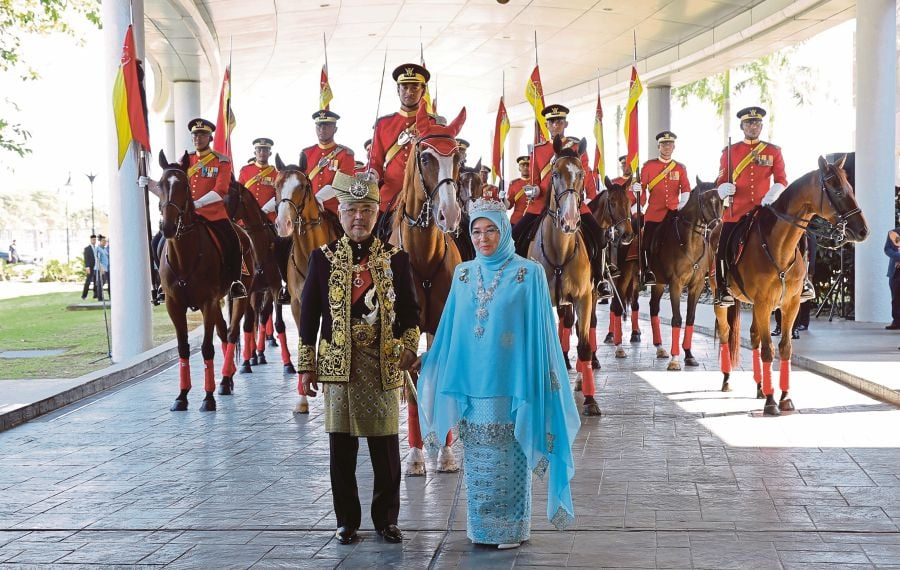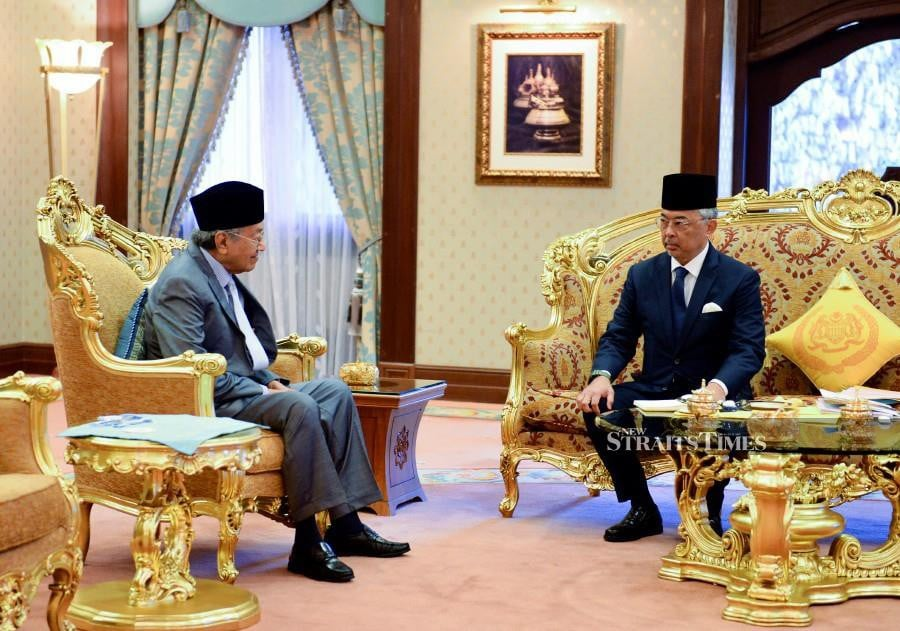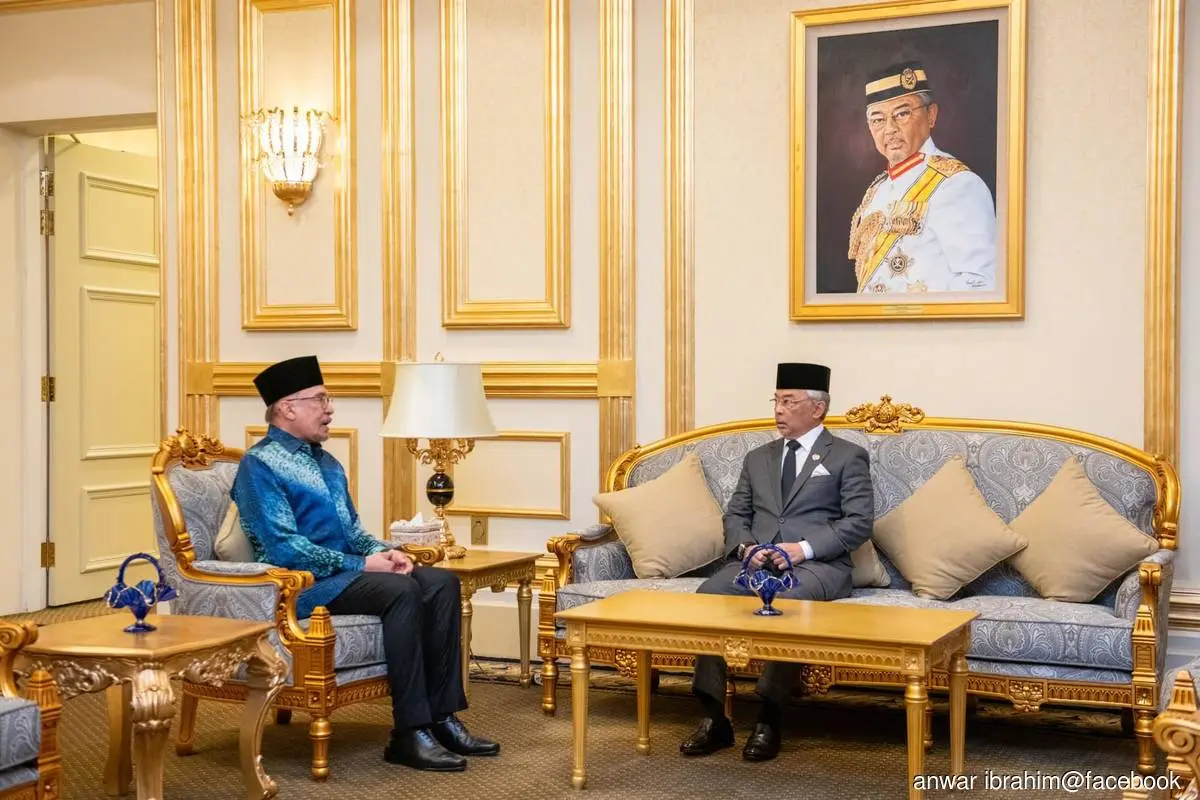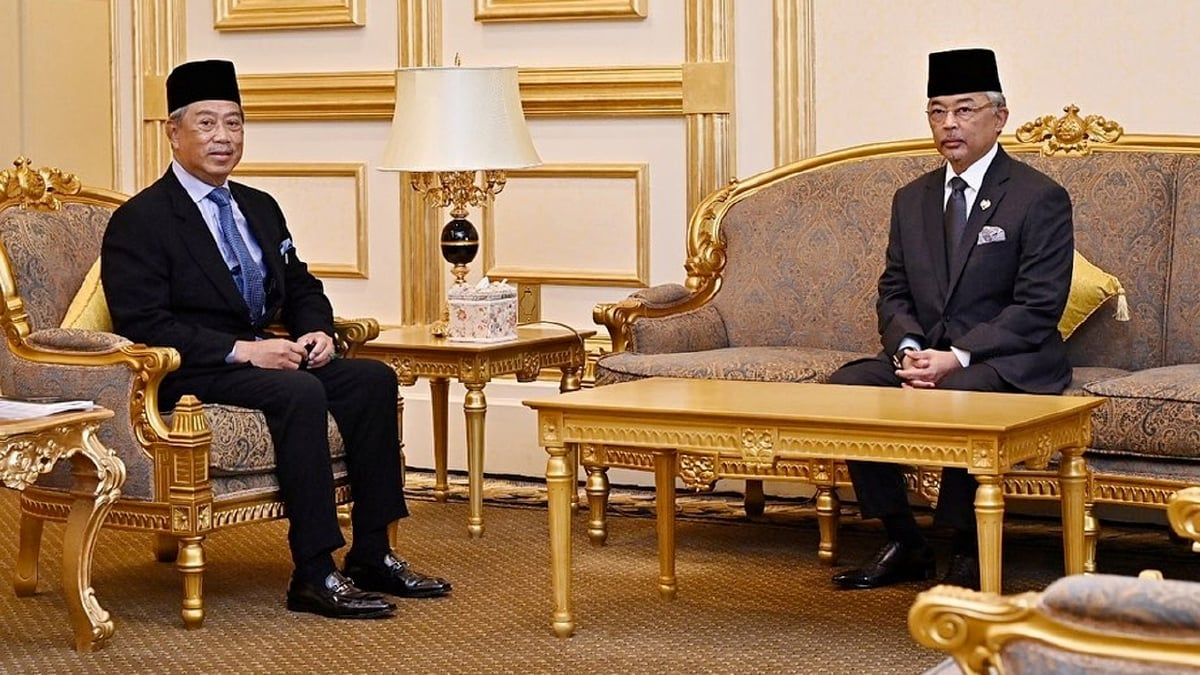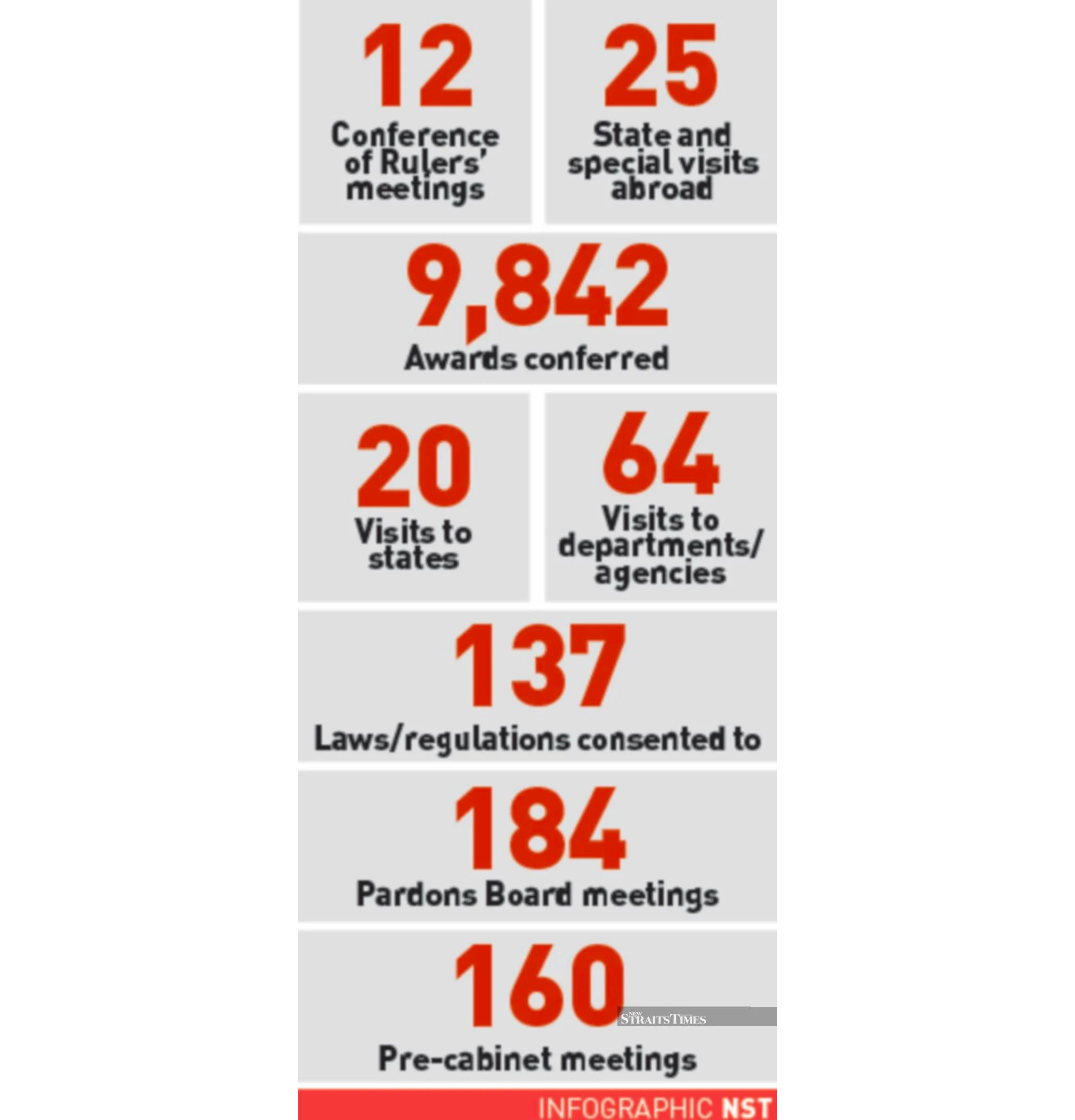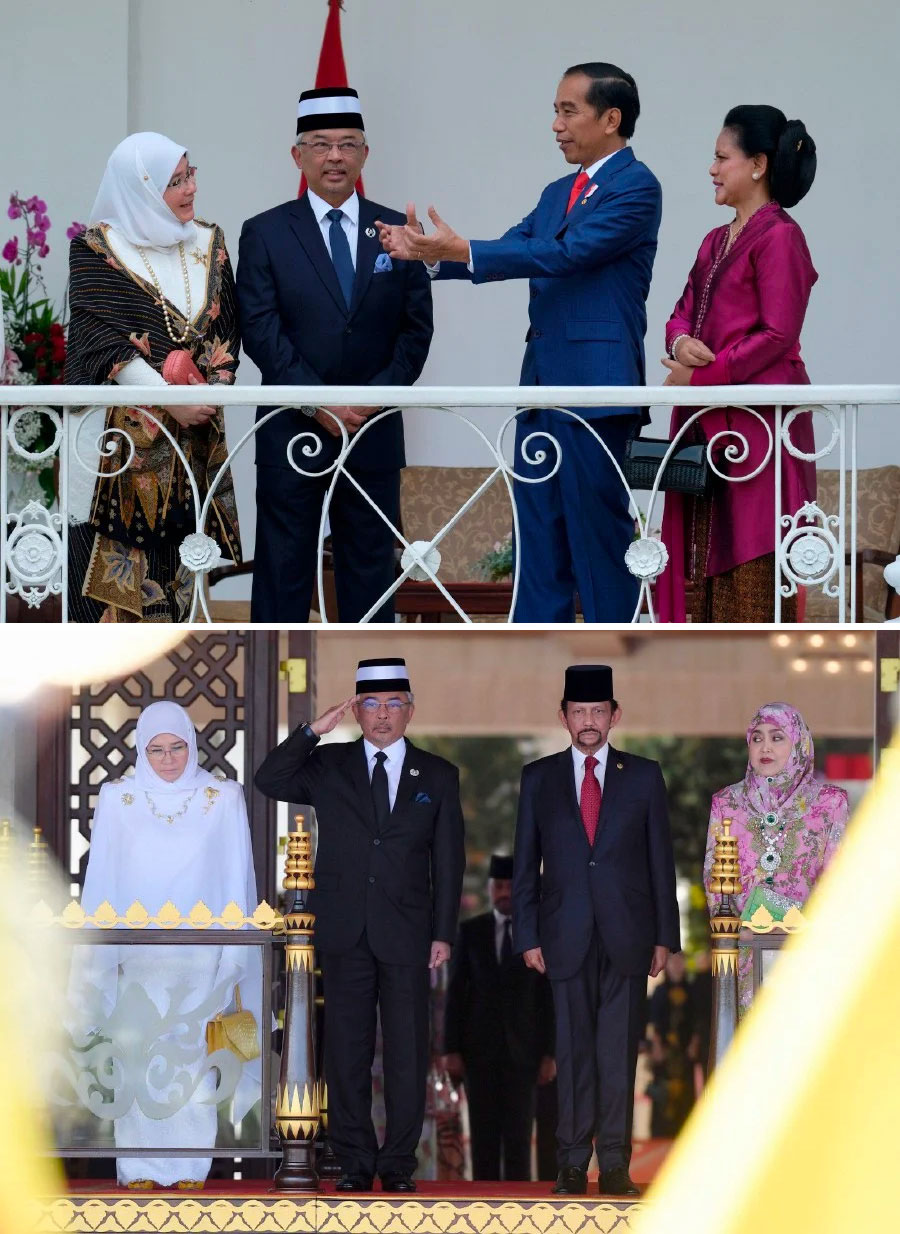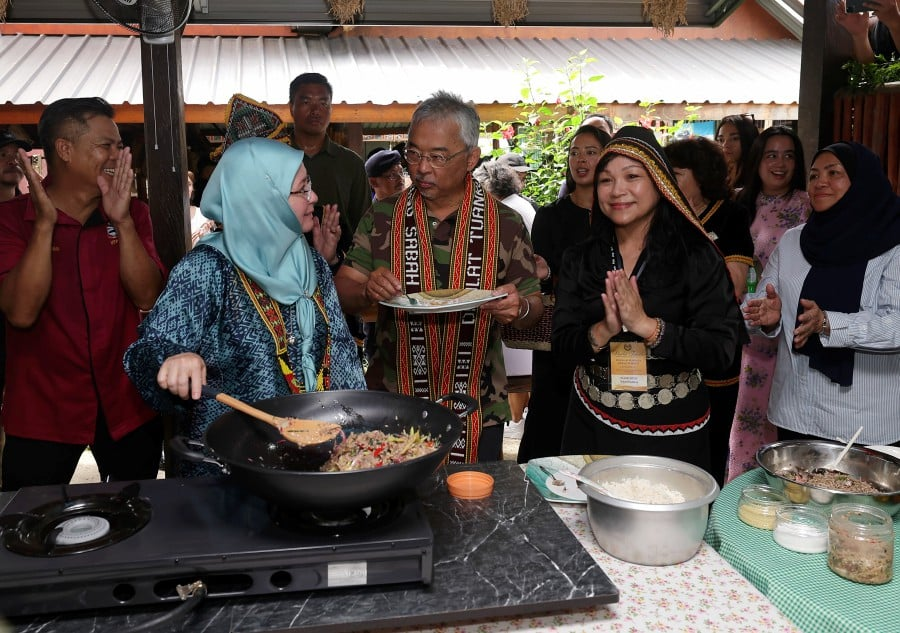From Political Crises To An Emergency: 5 Things Al-Sultan Abdullah Did As The Agong
We will miss you. <3
Today, 30 January, marks the last day of Al-Sultan Abdullah Ri'ayatuddin Al-Mustafa Billah Shah's five-year reign as the 16th Yang di-Pertuan Agong
A brief ceremonial send-off was conducted as the Sultan of Pahang departed from Istana Negara at 8am today to head to Kuala Lumpur International Airport (KLIA), where he took a flight to Pahang.
The ceremony witnessed his passage through Parliament Square and various main roads in the federal capital en route to the Bunga Raya Complex at KLIA, reported the New Straits Times.
Al-Sultan Abdullah was sworn in as the 16th Yang di-Pertuan Agong on 19 January 2019, just 15 days after being proclaimed Sultan of Pahang. He succeeded his then-ailing father, Sultan Ahmad Shah Al-Musta'in Billah, who died on 22 May 2019.
Image via Bernama via New Straits Times
To commemorate Al-Sultan Abdullah's five bustling years as the Agong, here are five noteworthy highlights that showcase his grace and wisdom during his tenure:
1. He worked with four prime ministers and swore in three of them
The Sultan of Pahang is the only Agong in Malaysia's history to have worked with four prime ministers and swore in three prime ministers.
When Al-Sultan Abdullah ascended to the throne in January 2019, Tun Dr Mahathir Mohamad was serving as the seventh prime minister.
Following the aftermath of the political manoeuvre, dubbed the 'Sheraton Move', in February 2020, he swore in Tan Sri Muhyiddin Yassin as the eighth prime minister on 1 March 2020.
Seventeen months later, Muhyiddin lost the majority support of the government, compelling him to step down from the premiership on 16 August 2021. His successor, Datuk Seri Ismail Sabri, was sworn in as the ninth prime minister on 21 August 2021.
During the political impasse following the 15th General Election (GE15), Al-Sultan Abdullah identified Datuk Seri Anwar Ibrahim as the prime minister candidate that commanded the most support from elected representatives and appointed him as the tenth prime minister on 24 November 2022.
Image via Bernama via New Straits Times
2. He led the country through three political crises
Malaysia experienced a lack of political stability between 2020 and 2023, and during this period, Al-Sultan Abdullah adeptly navigated the nation through three significant political crises in a democratic manner.
Below are the times when Al-Sultan Abdullah invited MPs and party leaders to Istana Negara to determine the selection of the prime minister during each political event:
25 February 2020 to 29 February 2020: One-on-one interview with 222 members of parliament (MPs) to determine the next prime minister after the 'Sheraton Move'
– During the week-long political turmoil at the end of February 2020, Al-Sultan Abdullah made an unprecedented move to interview every MP to ascertain which party commanded the majority to form the new government
– Following that, on 28 February, he asked leaders of all the political parties to nominate a prime minister candidate
– The political crisis ended with the appointment of Muhyiddin as the eighth prime minister, who was sworn in on 1 March 2020
16 August 2021 to 20 August 2021: Muhyiddin lost majority support
– When Muhyiddin handed over his resignation letter as the prime minister, Istana Negara announced that he would continue serving as caretaker prime minister until a successor was elected
– Following that, Al-Sultan Abdullah summoned 114 MPs from Barisan Nasional (BN), Bersatu, PAS, and Gabungan Parti Sarawak (GPS), among other parties, to name their prime minister candidate
– The political impasse came to an end with the swearing in of Ismail Sabri as the ninth prime minister on 21 August 2021
21 November 2023 to 23 November 2023: Hung parliament after GE15
– When no single coalition attained enough parliamentary seats to form the federal government after GE15, party leaders and coalition heads were asked to propose a prime ministerial candidate to Al-Sultan Abdullah before he consulted other Malay rulers to revolve to the political impasse in the formation of a federal government
– After learning that Perikatan Nasional had refused to work with Pakatan Harapan to form a unity government, Al-Sultan Abdullah appointed Anwar as the 10th Prime Minister to lead the federal government alongside BN, GPS, and Gabungan Rakyat Sabah, among other coalitions, ending the six-day long hung parliament dilemma
Image via Anwar Ibrahim via The Edge
3. He steered the nation through a health crisis and an emergency
As the Agong during the COVID-19 pandemic, Al-Sultan Abdullah played a vital role in calming the rakyat and ensuring everyone adhered to standard operating procedures.
When the number of daily COVID-19 cases was on the rise in the second year of the pandemic, he gave his consent to declare a nationwide emergency.
The Agong was acting according to Article 150 and Article 40 of the Federal Constitution, which stipulated that an emergency can only be declared by the Agong if he is convinced — under the premier's advice — that there is a security, economic, or public order threat.
It was through his leadership that Al-Sultan Abdullah was able to check Muhyiddin's administration when the then-government misled the MPs regarding the revocation of the Emergency Ordinances.
Image via Istana Negara via Harian Metro
4. He played a key role in bolstering the economy
Al-Sultan Abdullah played a crucial role in strengthening bilateral trade and economic relations with other countries, having undertaken a total of 25 state and special visits abroad, reported the New Straits Times.
As the Agong, he visited Indonesian President Joko Widodo, Brunei Sultan Hassanal Bolkiah, Saudi Arabian King Salman bin Abdulaziz Al Saud, and Turkiye President Recep Tayyip Erdogan, among others.
Al-Sultan Abdullah also visited flood victims in Pahang in December 2021 and as recently as this month. Did you know that he also visited SAYS' office at Sri Pentas on 17 January?
Below is an infographic of all the engagements Al-Sultan Abdullah had during his five-year reign as the Agong:
Image via New Straits Times
Image via Bernama via New Straits Times
5. He embarked on an unforgettable inaugural Borneo tour
Of all the visits he made, Al-Sultan Abdullah said his extensive road trip through Sabah and Sarawak in September 2023, known as the Kembara Kenali Borneo tour, was an unforgettable "eye-opening sojourn", reported The Star.
Without blaming any parties, he highlighted the need for proper financial allocations to ensure the efficient implementation of government projects, adding that Malaysians living on the peninsula should appreciate the existing basic infrastructure.
He was also moved by the Sabahans and Sarawakians' readiness to wait for hours by the roadside for a chance to shake hands and even share their food with him.
"I was touched when a youngster called me 'Pak Cik Agong'. Some called me 'Abang Agong'. There were also those who called me 'Gong Gong Gong'… It was truly pleasing for me," he quipped.
Image via Bernama via New Straits Times
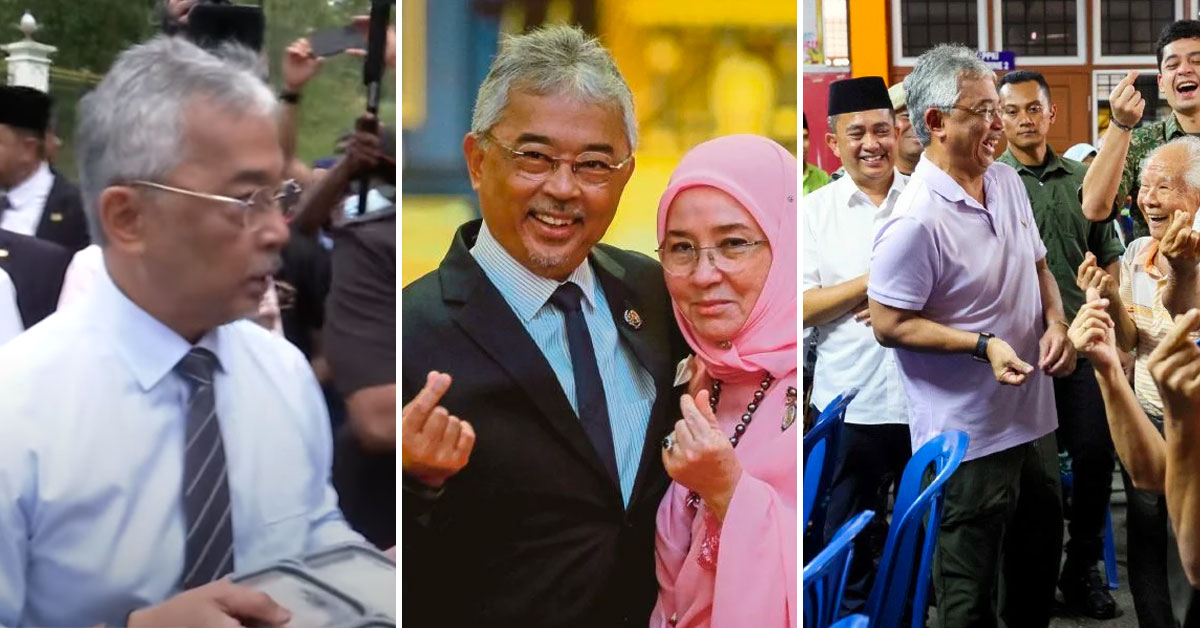 Cover image via
Cover image via 